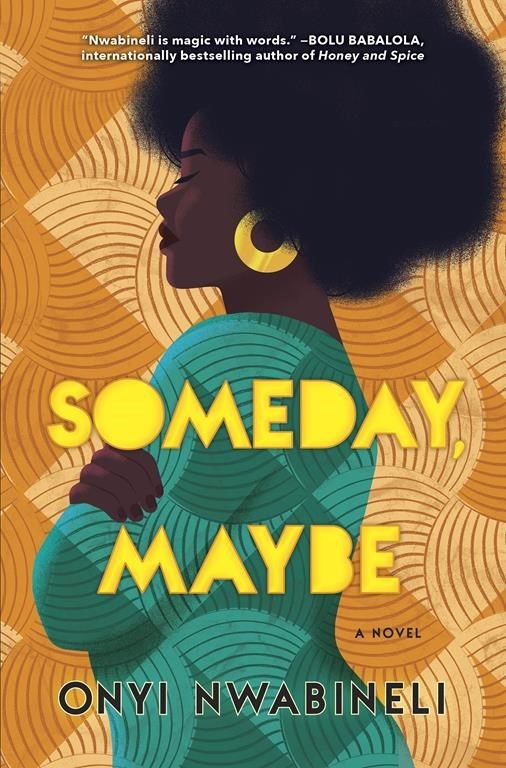“Someday, Maybe” by Onyi Nwabineli (Graydon House Books)
“Someday, maybe” is a phrase that noncommittally encapsulates hopes and fears alike. It's a response that lacks urgency, stagnating in the purgatory between “yes” and “no.”
Onyi Nwabineli’s debut novel “Someday, Maybe” follows Eve Ezenwa-Morrow through the strange, depression-ridden soup of time immediately after her husband’s death. The title phrase reemerges throughout the book as Eve navigates the uncertainty of her newfound widowhood.
On the first page we learn that the main character found her husband, Quentin Morrow, who she thought was perfectly happy, after he killed himself on New Year's Eve. Insert trigger warning here.
A lot of expectations come with that shocker of a prologue: high drama, fast pace, mystery.
Dramatic proves to be a great word to describe this novel. Fast-paced and mysterious? Only a touch. Most of the story happens at Eve's home in London, where she is haunted by reminders of Quentin and the life they shared, her phone a secondary character that is constantly ignored as a host of family members and friends try — to little avail — to contact her.
Days lurch forward erratically, stitched together by memories that bubble up from Eve's childhood and, later, her relationship with Quentin, a photographer from one of London’s elite families. Nwabineli relies heavily on these flashbacks early on, when time moves excruciatingly slowly in an embodiment of fresh, festering grief. Through these, readers accompany Eve as she slowly confronts her relationships and conflicted feelings.
Nwabineli deftly weaves Eve's Igbo heritage into the story, incorporating phrases, food and traditions. Eve's experience as a Black woman in an interracial marriage with a major wealth gap between their families proves key in contextualizing her fraught relationship with her ice-cold mother-in-law, Aspen.
Then, about halfway through the book, Nwabineli drops a bomb that changes the rules of the game. What had become a lull of spiraling depression gets the jolt that Eve — and the story — needed. After all, the book's 350 pages is a long time to sit in grief, accurate as it may feel.
Readers should beware that the novel deals with suicide, and does describe aspects of Quentin’s death in scraps of memory sprinkled here and there. But Nwabineli doesn’t go on to clarify the method until tastefully late in the book, handling the subject in a way that is both respectful and honest, capturing Eve’s raw emotions: anger at her beloved “Q” for leaving her, defensiveness over her husband’s reputation, confusion over his apparent lack of a note, desperation at the thought that she didn’t see any signs.
“Someday, Maybe” is broken into four parts. They’re labeled by setting, rather than by stages of grief, which often prove messy at best and inaccurate at worst. By shying away from “stages,” Nwabineli normalizes the unpredictability of the process.
She also turns clichés into quirky, imagery-laden metaphors — a must when describing emotional devastation for the hundredth time.
“Someday, Maybe” is an earnest study on grief that forces you to examine it and not look away. For as long as the anguish is there, we are in Eve’s head experiencing it with her — along with all the well-meaning but misguided and haphazard attempts by friends, family and coworkers at “fixing” it.
Donna Edwards, The Associated Press


